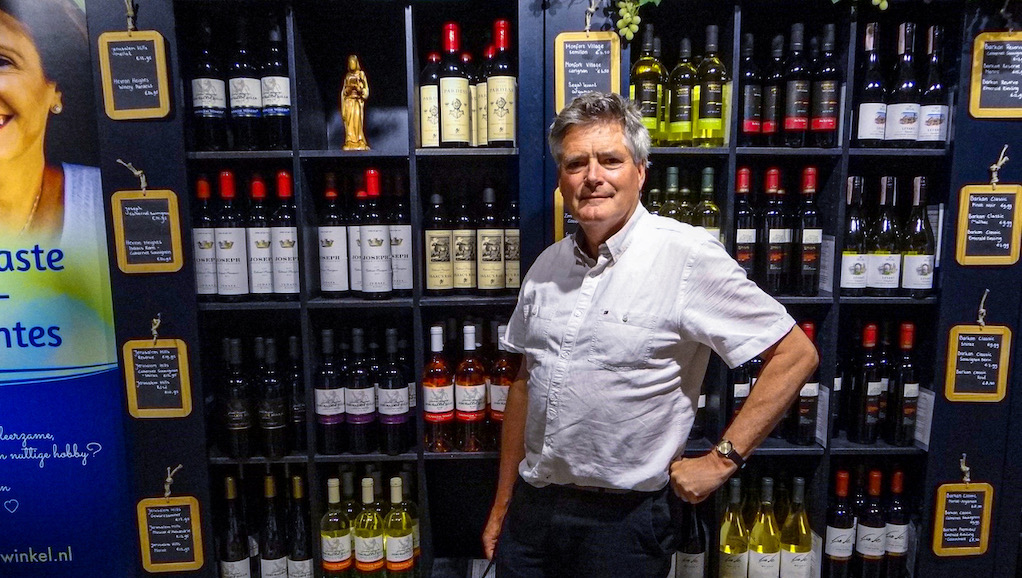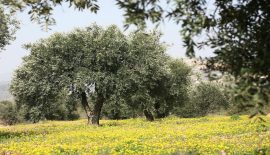Labelling ‘Settlement’ Products – More Politics than Law
The governments of France and the Netherlands are trying to compel importers of products made by Israelis in the ‘West Bank’ to inform consumers that they have been made in ‘Israeli settlements’. These cases are testing the validity of the EU’s policy that ‘East Jerusalem’ and the ‘West Bank’ do not belong to Israel.
The Israel Products Centre (IPC), a Dutch company connected with the non-profit organisation Christians for Israel, imports a wider range of products from producers in Israel and sells them in the Netherlands and several other European countries. Amongst these are certain wines produced in a winery located in Hebron, south of Jerusalem in what is known as ‘Area C’ under the Oslo agreements.
The Dutch Food and Commodities Authority (NVWA) carried out a surprise ‘investigation’ at IPC’s distribution centre in Nijkerk in mid-April 2019. Three inspectors came unannounced. At the end of the visit, they stated that IPC is breaching the law and can expect to receive a letter specifying the breaches and the required changes. Later, the NVWA sent a notice to IPC stating that the ‘Product of Israel’ labels on the ‘Judea Winery’ and ‘Hebron Heights’ wines (which are produced in Hebron) are ‘misleading’ within the meaning of EU Regulation 1169/2011 on the provision of food information to consumers as implemented in the Netherlands. IPC must ‘immediately’ amend the labels and website in order to comply with this regulation.
The NVWA says it is required to comply with the ‘Interpretative Notice’ 2015/C 375/05 published by the European Commission on 12 November 2015 (‘Notice’), and that therefore IPC is also bound by the Notice. The Notice was issued by former EU High Commissioner Mogherini to the Member States. She said she was just implementing EU policy that all territory outside the Green Line is ‘not a part of Israel’s territory’. According to the European Commission, the Notice was issued in order to clarify to consumers, market players and national authorities how EU legislation concerning the indication of origin applies to products ‘from Israeli-occupied territories’.
“For products from Palestine that do not originate from settlements, an indication which does not mislead about the geographical origin, while corresponding to international practice, could be ‘product from the West Bank (Palestinian product)’, ‘product from Gaza’ or ‘product from Palestine’.” (para 9)
“For products from the West Bank or the Golan Heights that originate from settlements, an indication limited to ‘product from the Golan Heights’ or ‘product from the West Bank’ would not be acceptable. Even if they designated the wider area or territory from which the product originates, the omission of the additional geographical information that the product comes from Israeli settlements would mislead the consumer as to the true origin of the product. In such cases, the expression ‘Israeli settlement’ or equivalent needs to be added, in brackets, for example. Therefore, expressions such as ‘product from the Golan Heights (Israeli settlement)’ or ‘product from the West Bank (Israeli settlement)’ could be used.” (para 10)
The Notice is a strange document. It is not a separate piece of legislation and has no direct binding effect in the Member States. Its status is extremely unclear.
The Notice was the subject of much controversy in the Dutch Parliament in 2015. The then Foreign Minister Koenders, in response to questions, answered that the Dutch government regards the Notice as being applicable in the Netherlands.
IPC has rejected the NVWA’s demand and refuses to change the labels until there is more clarity about EU law on this issue.
Director of Christians for Israel Netherlands, Roger van Oordt, issued a press release stating that the actions of NVWA are “simply anti-Jewish”. “The EU’s Notice makes a distinction between products produced by Jews and products produced by Arabs”, he said. “Labelling was originally intended to ensure food safety. It has become a political instrument to put pressure on the Jewish State of Israel. That is unacceptable.”
The Notice is also currently the subject of legal proceedings in France. The Notice has been implemented in French law. The Psagot Winery (whose winery is located in Benjamin, north of Jerusalem) instituted proceedings against the French Minister of Economic Affairs claiming that the Notice is invalid because it is in breach of European law. Particularly, it alleges that the notice is discriminatory because it applies to only one specific instance of ‘occupied’ territories, and not to other cases. The French court referred the question of the validity of the Notice to the European Court of Justice. In mid-June, the Advocate General Hogan issued his advice to the Court, in which he basically confirmed the validity of the Notice. In doing so, he adopted the faulty reasoning of the International Court of Justice in the Wall case (2004) about the status of the territories outside the Green Line.
The most concerning aspect of this is that the Advocate General completely ignores the Mandate for Palestine, and rejects out of hand (without giving any reasons) the possibility that Israel may have a legitimate claim to sovereignty over East Jerusalem, Judea and Samaria.
The Advocate General also states that the ‘occupation’ in itself is illegal. That is a false and misleading statement, as a belligerent occupation is not illegal under international law. But even assuming Judea and Samaria are ‘occupied’, he overlooks that the only thing that is possibly illegal is the Israeli policy to ‘transfer or deport’ Israelis into the ‘occupied’ territories (article 49(6) of the Fourth Geneva Convention). This means that in the case of the Hebron winery, the Dutch authorities would need to prove that the Israeli government enabled, facilitated or encouraged its establishment in Hebron – and that without the government’s support, the winery would not have been established.
It is important to note that the AG did not address the arguments of Psagot that this labelling requirement is discriminatory and restricts trade. Further, as the lawyer for Psagot has noted, the AG’s reasoning is very open-ended: the same requirements would have to be applied to all other cases of ‘settlements’ in ‘occupied territories’. In fact, products from any country breaching any aspect of international law would need to mention the illegality on the label.
These cases are another example of ‘lawfare’ – the use of law and legal systems to impose a particular political view on others who are opposed to that view.





